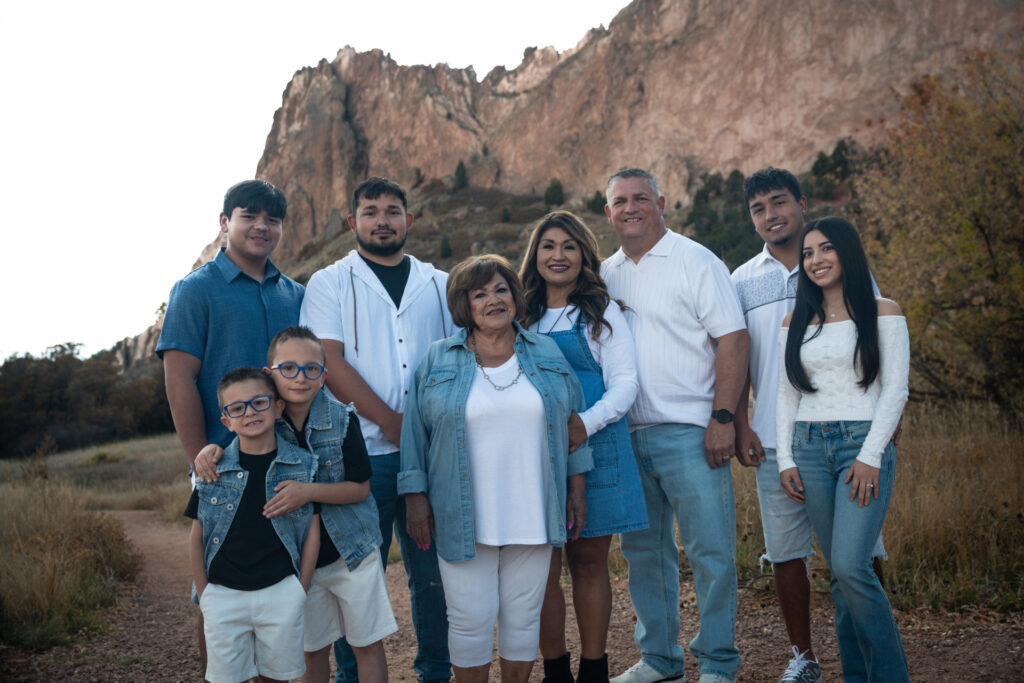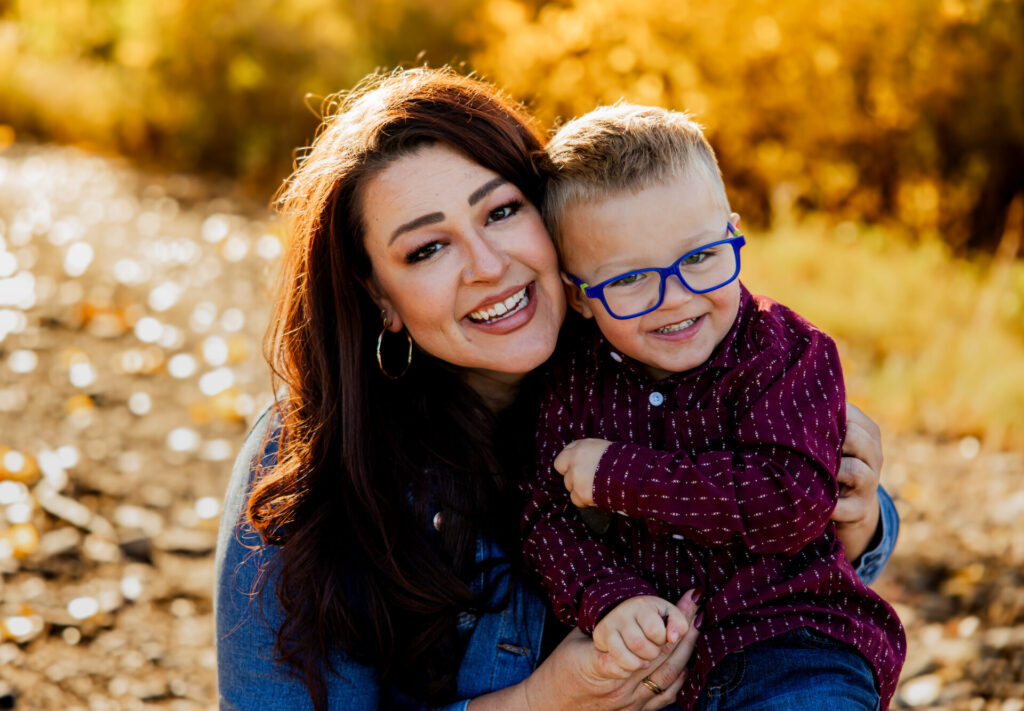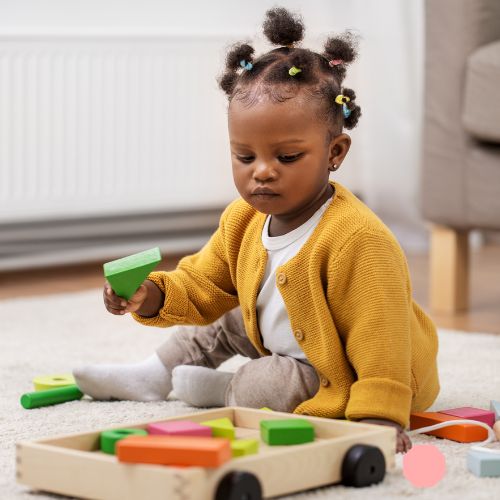When you adopt a teenager, they pick you.

Last year, Bryarly and her husband Wesley adopted a 15, now 16-year-old, teenager. In part one of this two-part blog, Bryarly talks about how she and Wesley met a teen who was also a gamer, answered her questions about themselves and how they knew it was a good match.
Q. When and why did you and your husband decide to adopt? Did you imagine adopting a teenager?
A. We came to the decision differently. We met 5-years ago in our mid-40’s, and as I am unable to have a child at this point, adoption or surrogacy were our only two obvious means to start a family. He always knew he wanted to be a father, but the timing in relationships and life never facilitated that process. I wanted to be a parent for 20+ years, and was approved to adopt in another state 10-years ago, but my husband at the time decided he did not want to be a father, so I moved on from pursuing motherhood.
I honestly did not foresee working through the process again after the prior disappointment, but a family was something he felt strongly about and we decided to investigate our options. After research, we both felt adoption was a viable option, and wanted to pursue adoption out of foster care versus infant adoption for a variety of reasons. We did not limit our age range, selecting 0-18 on all of forms and during interviews; however, our initial vision of a child was elementary school age.
Q. Can you describe how you and your daughter got to know one another before she was even placed with you? (this is where you could talk about how she picked you, requested a PowerPoint and sent you 13 questions)
A. We were initially presented our daughter as a potential match after seeking information about a few other children on the Colorado Heart Gallery website. She was not yet displayed as she was still going through the pictures/video/interview process. Her caseworker also handled one of the children we inquired about, and while we felt we were not able to handle the first child’s needs, she remembered us and contacted our CPA when our daughter was certain she wanted to pursue adoption.
One of the things that stuck out for our daughter’s caseworker was a statement in our home study that stated we were seeking a “geeky kid” to join our “geeky family.” We are both computer gamers and overall geeks, and desired to add a child to our family that would either already enjoy those types of activities, or would be amenable to growing up in that type of environment. Our daughter is an avid gamer, anime fan, anime artist, and creative writer, and when she was interested in adoption at 15-years old, her caseworker thought, “I know the PERFECT family!”
As a result, she was presented basic information about us, as older children have a significant say in the adoption process, and wanted to know more about us, our home, and what she could expect if she selected us as her potential adoptive family. We created a PowerPoint with pictures of us, the multitude of pets in our home, our activities, and bullet point biographies about us for her caseworker to share with her in her wonderful foster home.
She was very excited when she saw the list of games we currently played, apparently asking her caseworker to convey information about her characters from those games to us. She also asked 13 specific questions about her life and the situation she would be agreeing to if she selected us. These included whether she would be able to stay at her current high school, how much time she would be allowed on the computer, cell phone rules, chore details, and how she would be treated overall in terms of micromanagement. My husband and I worked through the questions, some of which we’d never considered, and decided that we would allow her to stay at her current high school even though it would be a significant commute. We successfully answered those questions, and she agreed to move forward with meeting us and the matching process as a whole.
We met her about a month after we passed the 13-questions, in a traditional meeting held at the Jefferson County Human Services office. We were nervous, as was she, but the meeting went well, and she agreed to come to dinner with us after the session. We went to sushi (her favorite, and one of ours) with her older brother and foster mother, and had a fantastic time. She asked to ride with us to the sushi restaurant after the meeting, rather than with her brother and foster mother, which surprised us, but we spent the entire time talking about gaming, computers, and other geek topics. At one point she said, “this is easy because talking to other gamers is comfortable.”
She drove the timeline for the first visit, first overnight, and moving in to the house with us. During the first two weeks before the first overnight, we met her at the foster home for dinner, or took her out shopping or for meals. Before she even moved in with us, she asked us to attend her parent/teacher conferences at the high school, which was very surprising. She and I IM’d and texted quite a bit, as my job as a financial analyst allows me more freedom than does my husband’s nursing position, and I felt that we got to enjoy careful communication and sharing of silly things throughout that time. She came to see the house, and wanted to spend the night the following weekend, but by this point, all of us were very certain this was a great match. We gamed far too late into the evenings the first weekend, and then she decided to move in with us two weeks later – the three of us felt it couldn’t happen soon enough.
The common interests and “speaking each other’s language” made the initial phases incredibly comfortable and gave us common ground on which to build a relationship.
Q. How were the first days of the placement compared to now? Anything that was a challenge then that seems insignificant now?
A. While many people say that their placement was a joy, for us, it is the truth. Certainly, we have had issues arise surrounding timeliness of homework, room cleanliness, learning how to live with pets, and day-to-day type things, we have not truly had a “blow out” fight or need to restrict/punish her through the entire 14 months of the placement. We explain guidelines, listen to her point of view, talk about situations either together or just as parents, gain insight from our family counselor, and make decisions. We treat her with respect if she behaves reasonably, and can rationalize and barter with her to get the desired outcome most of the time.
The biggest challenges we faced, that we still face, are gaining her trust and encouraging her to let her guard down/show emotion. The skills she had to learn to survive in her biological home served her well for the first 12 years of her life, but they have proven to be an obstacle to building open, emotionally attached relationships once she was in foster care and then placed with us. It is a work in progress, and will likely always be a challenge; however, biological relationships are no different in terms of obstacles and challenges. She comes honestly by her guarded nature, and we will work every day to show her we will not let her down, will not betray her trust, and will love her always.
It felt very stressful to me in the beginning because she would shut down my attempts to be affectionate or ask her about her feelings. While we have made some progress in those areas, my stress is far less because I have adjusted to what she can give right now. I have hope she will be able to give more as she gets older and trusts us more, but regardless, we are incredibly lucky to have her as our daughter.
More Posts







